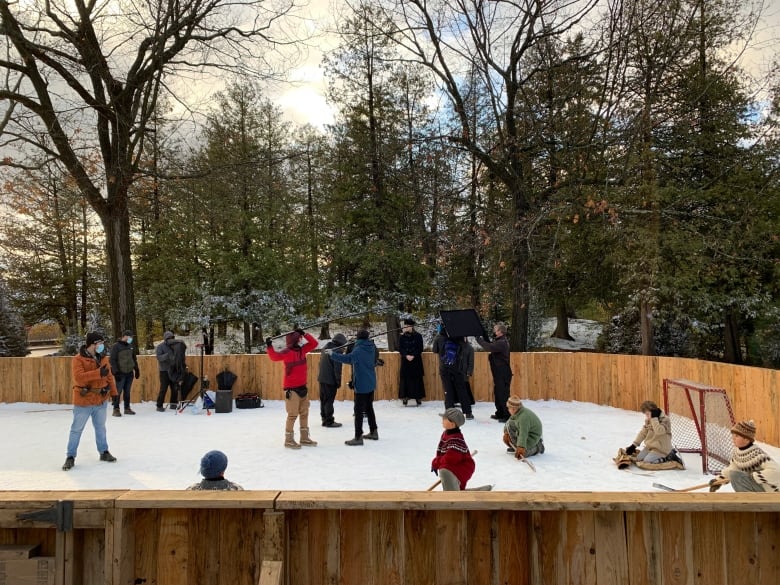Lessons learned on set of residential school TV show, after boy was asked to cut his long hair | CBC News
A mother of children cast in a drama series about residential schools says she hopes to see more cultural sensitivity taken when bringing stories of that dark chapter in Canadian history to the screen.
Both of Adriana Poulette’s sons, Tharahkwisere Stacey, 11, and Tahaniehtatihentho Stacey, 9, were cast as extras in the miniseries Pour toi Flora after responding to a casting call shared on Facebook.
The six-hour French language miniseries, which is being shot in Gatineau, Que., and Kitigan Zibi, is the first Radio-Canada drama production to tackle the legacy of residential schools in Quebec.
“It’s ironic that we had to deal with the issues that paralleled our history,” said Poulette, who is Oneida and lives in Kahnawake, south of Montreal.
“There was a lack of sensitivity when it comes to dealing with Native children who are acting in a miniseries about residential schools.”
Poulette said her first concern came after her sons were fitted for costumes and then sent to hair and makeup with the expectation that Tharahkwisere would cut his long hair for the role.
“If it had written that in the casting description, I wouldn’t have put my son in for the call,” said Poulette.

Tharahkwisere has been growing his hair out for six years, and his mother said he immediately expressed the desire not to cut it.
“It means a lot because not a lot of people can put up with growing hair for six years, and I’m proud of it because it makes me feel connected with the Creator,” he said.
Tharahkwisere was upset about having to be recast, but said producers gave him the opportunity to shadow crew behind the scenes, and stand in for actors on set. His younger brother remained an extra.
However, Poulette said some things on set made her uncomfortable, such as the crew calling the children by number instead of by name during the first few days — something she said felt reflective of the experiences children had in residential schools.
The show depicts two Anishinabeg who are trying to come to terms with their forced removal from their parents’ care by the Oblate missionary order in the 1960s. It was written and directed by Kanesatake filmmaker Sonia Bonspille Boileau and produced by Kitigan Zibi’s Jason Brennan for Nish Media.
Marc Pichette, spokesperson for Radio-Canada, said in an emailed statement in French that several measures had been put in place, including training for actors and department heads on residential schools.
They also hired an elder for emotional support during difficult scenes.
“Nevertheless, this incident shows that a misunderstanding can nevertheless arise,” he said.
“As Radio-Canada is determined to produce other programs reflecting the realities, issues and cultures of the First Nations, Inuit and Métis, we intend to put in place a broad training protocol to ensure that this sensitivity is not only reflected on screen but at all stages and in all aspects of production.”

Bonspille Boileau said looking back, there are things she would have done differently — including training for every crew member. Around 95 per cent of the crew is non-Indigenous, she said.
Some also are not fluent in English, creating language barriers and miscommunications with the Indigenous children who were cast as extras.
“I think hindsight’s 20-20, and I’ve learnt so much on this project of what still needs to be done in terms of decolonizing the screen,” said Bonspille Boileau.
“It is not just what we put on screen, it’s how we put it on screen.”
Bonspille Boileau said the industry is far away from providing infrastructure to support that, including not having enough Indigenous crew members in Quebec, but said she felt it was important to bring the story to a Quebec audience.

As for Poulette, she said overall her sons enjoyed their experience, and she felt the crew was receptive to her concerns.
“I feel like a lot of lessons were learned because we said something. I just wish that we didn’t have to go through it,” she said.
Filming wraps this week and the show is scheduled to premiere on the streaming service ICI Tou.tv Extra next spring before airing on ICI Télé as well as APTN.
For all the latest entertainment News Click Here
